Why was #ThisIsACoup trending?
- Published
As European officials stayed up all night on Sunday trying to hammer out a deal that would keep Greece in the Euro, the hashtag #ThisIsACoup was trending on Twitter.
Users angry at the terms being imposed on Greece appended the term to their tweets.
By 09:00 GMT on Monday morning the term had been tweeted over 377,000 times and was trending overnight across Europe:
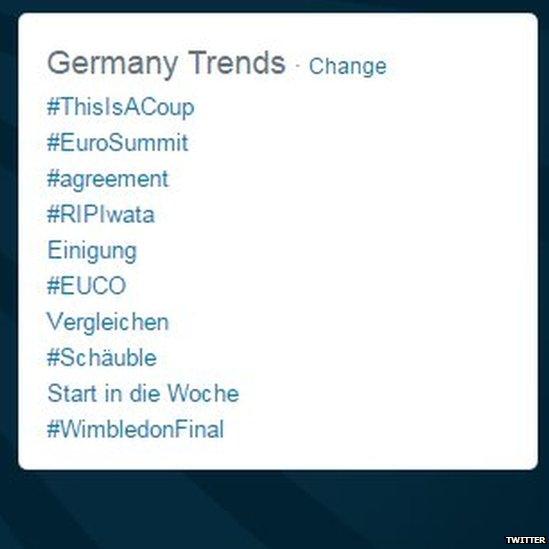
"People were lashing out at what they see as an unfair deal," says Anne-Marie Tomchak from BBC Trending.
"People are really unhappy at the amount of power that the Eurogroup has."
Fascism?
Many using the hashtag were particularly critical of Germany's stance, and compared the current situation to the Nazi occupation of Greece during World War Two:
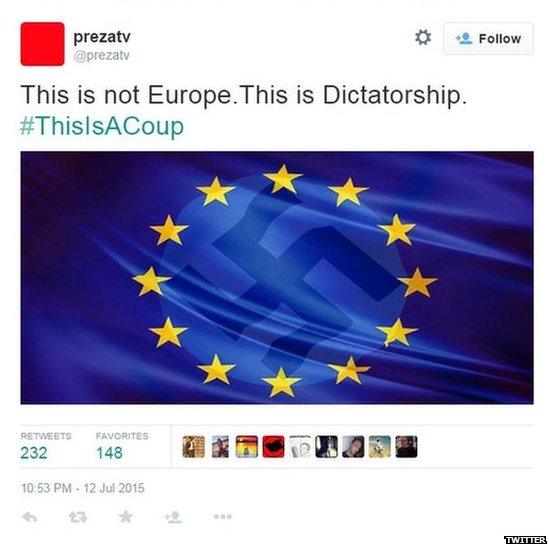
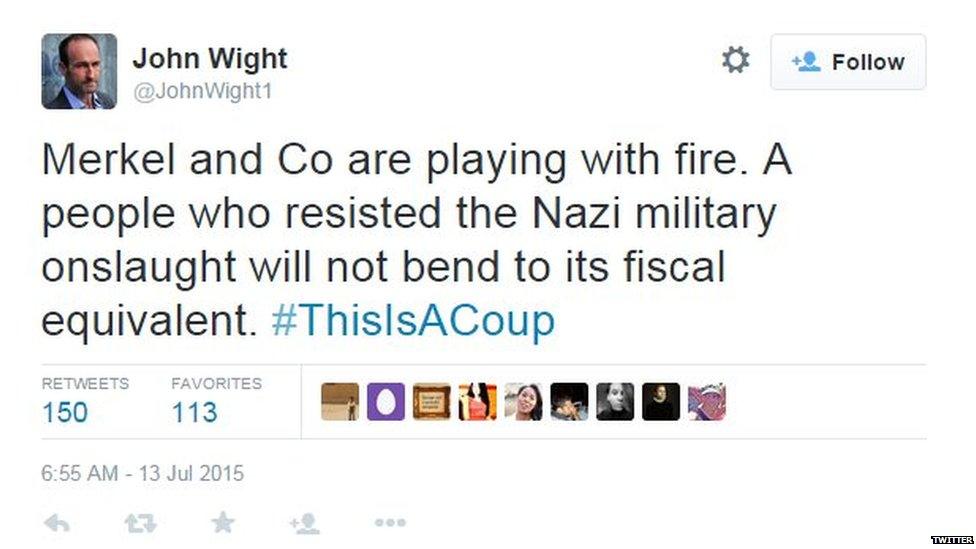
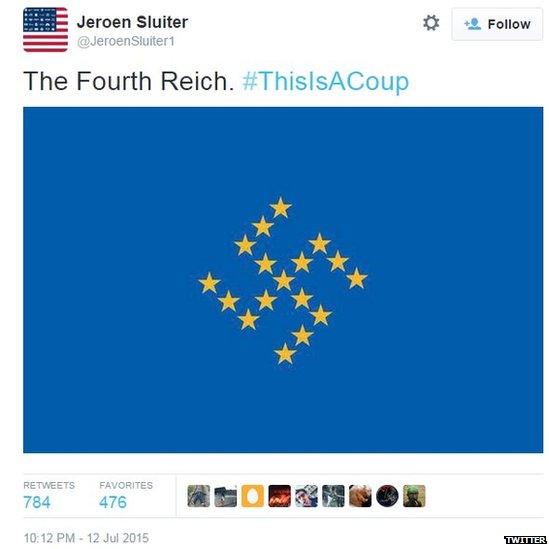
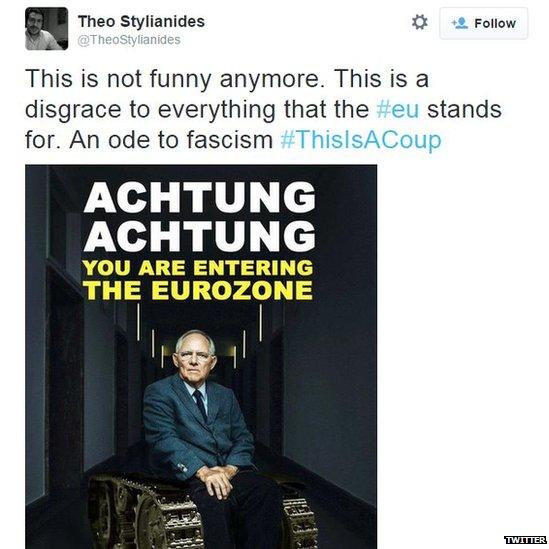
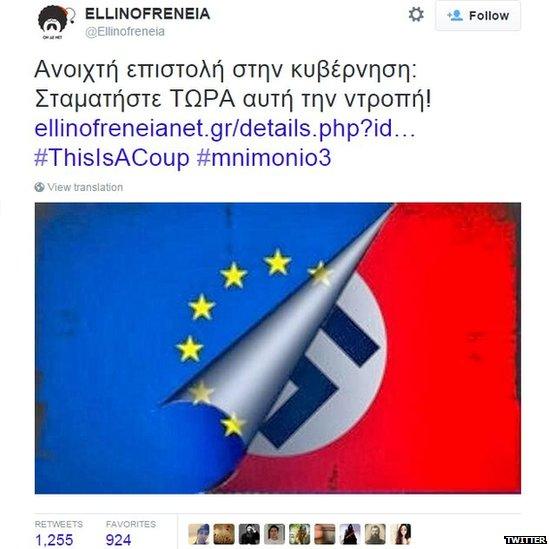
'Collective campaign'
The originator of the hashtag was reported to be this tweet by a Spanish maths and physics teacher on Sunday evening:
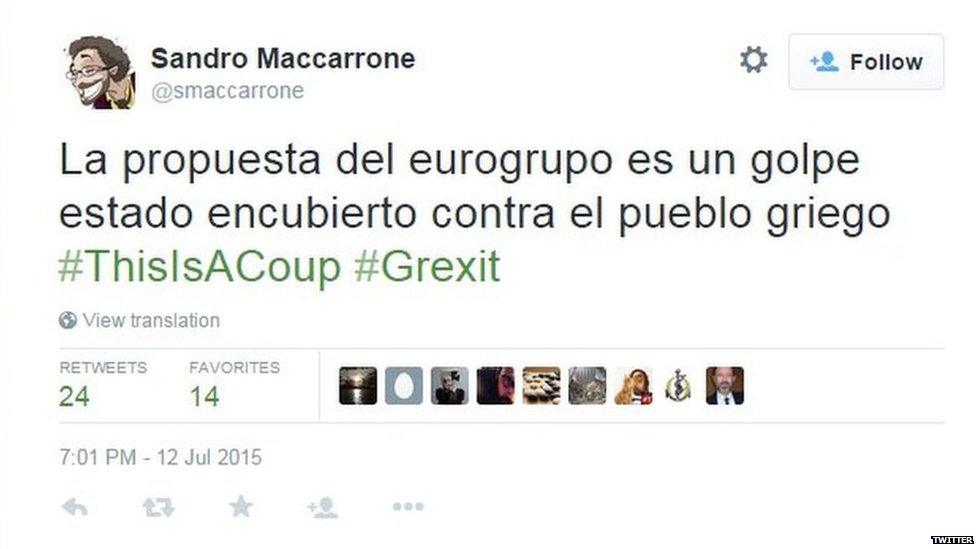
However Mr Maccarrone later clarified that the hashtag was a "collective campaign" by people on the Spanish left:
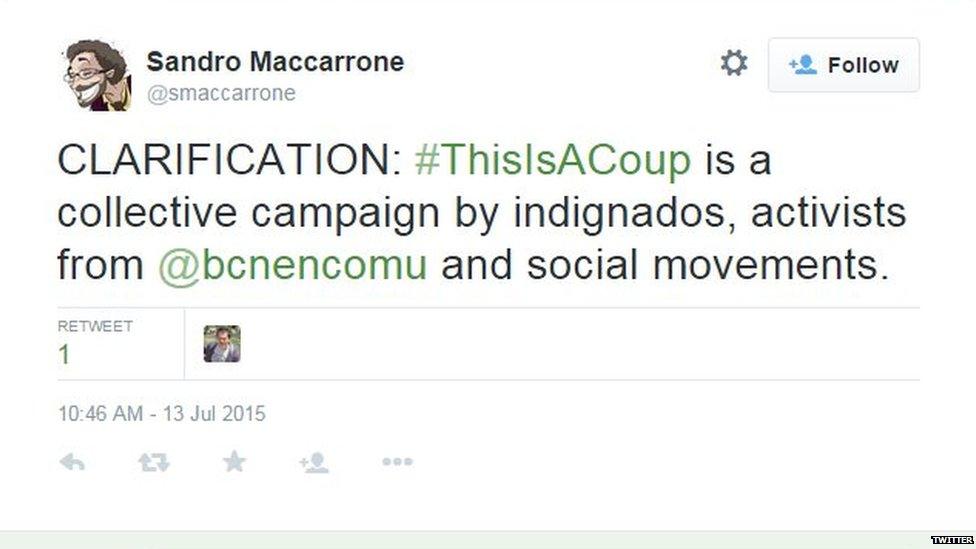
At 18:02 GMT on Sunday evening Barcelona's Mayor, Ada Colau, used the hashtag, saying Greece wants to respect dignity and human rights. "I am with Greece," she wrote.
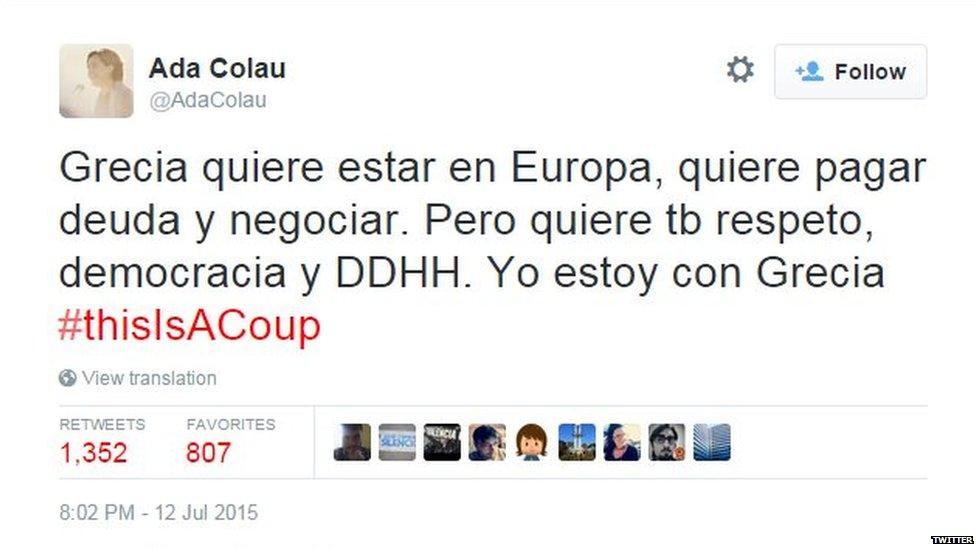
Later the leader of Spain's Podemos movement, Pablo Iglesias, tweeted: "All our support to the Greek people and its government against the mafia".
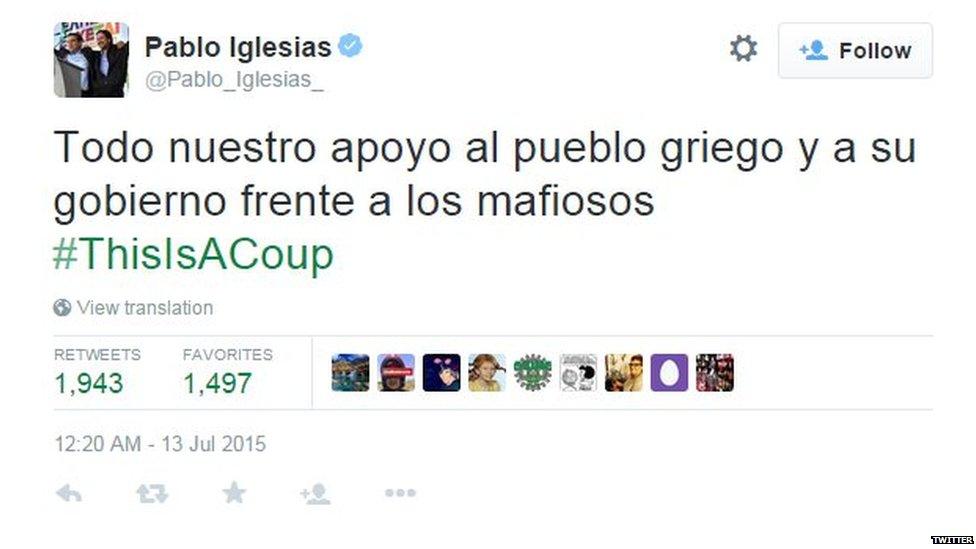
The Nobel Prize winning economist, Paul Krugman, picked up the hashtag, referring to it in a blog post for the New York Times, external.
"The trending hashtag ThisIsACoup is exactly right," he writes.
"This goes beyond harsh into pure vindictiveness, complete destruction of national sovereignty, and no hope of relief."
Not a coup?
For those who disagree with Mr Krugman's assessment of the deal for Greece, there's always #ThisIsNotACoup as an alternative hashtag.
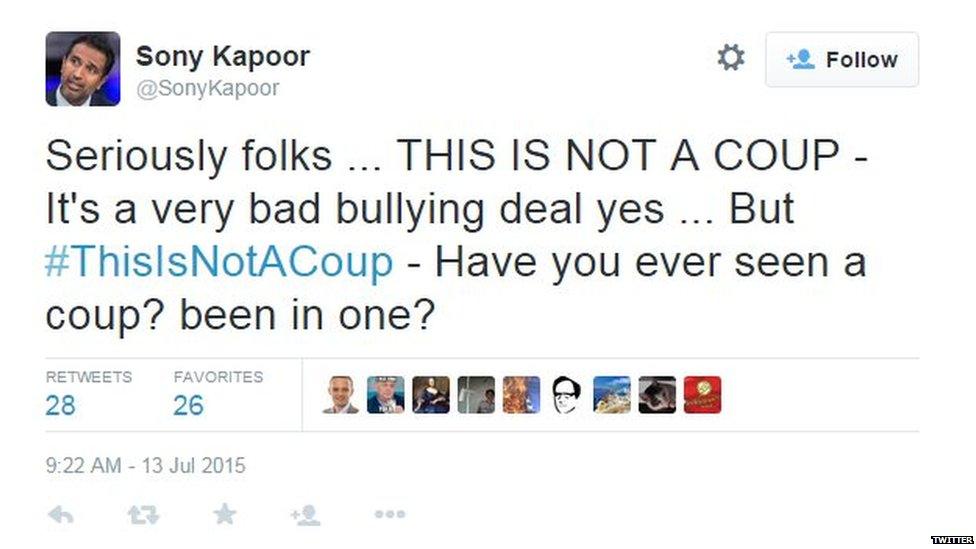
However #ThisIsNotACoup had been tweeted just 573 times by 09:30 GMT on Monday.
And Twitter users soon moved on - later in the morning #greekment (as punned by European Council leader Donald Tusk, external) was trending instead.